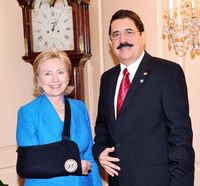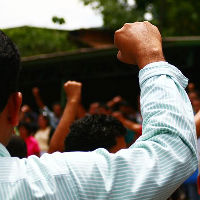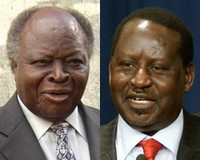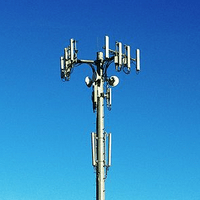
In the early hours of June 28, 2009, military personnel arrested Honduras’ President Manuel Zelaya at his home in Tegucigalpa. Clad in his nightgown, Zelaya was brought to the airport at gunpoint, where he was put on a plane bound for Costa Rica. His ouster capped months of conflict between Zelaya and nearly every other political actor and institution in Honduras, ranging from the Supreme Court to the country’s highest religious authority to the president’s own Liberal Party. Zelaya’s removal from power became the object of acute controversy and gave way to a complex political battle with hemisphere-wide implications. The […]




